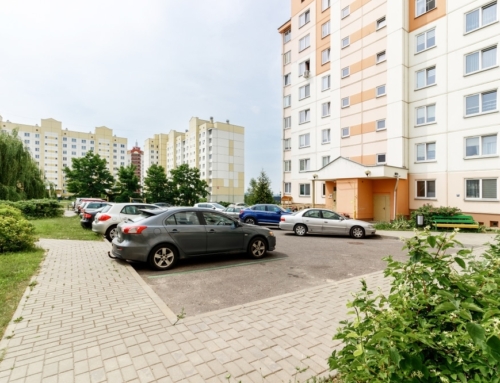Two weeks ago, a new rental building opened up for business in downtown Chicago. And for the Skyline Century of Progress, a completely renovated deco building built in 1930, business is good.
Since the building opened its doors two weeks ago, nearly 35 units, of more than 250 available in the building, have been rented. And, portions of the building remain under construction, according to Isos Stamelos-Monroe, Skyline’s leasing manager.
Perhaps the building’s immediate success has something to do with the incentives the building owner is offering to prospective tenants. Through the end of July, on a one-year lease, the landlord is offering two months free rent, a check for $500 toward moving expenses, and a $25 gift certificate to a local restaurant.
In addition, the tenants get a brand new unit with all the high-tech toys anyone could wish for.
Around the country, landlords are feeling the pinch. With mortgage interest rates as low as they’ve been in more than 50 years, renters have been turning into home buyers faster than you can say “real estate property taxes.”
William Friedman, president of Tarragon Realty, a real estate company with a rental portfolio of more than 16,000 units in Florida, Connecticut, Texas and Tennessee, says their average occupancy is now 92 percent, 1 percent less than last year.
“Our highest rent properties are generally most affected by the home buying frenzy, and those are the properties where rents have gone down the most in the past year,” Friedman says.
“To attract tenants to replace move outs we have had to increase advertising and offer specials. But the most effective and creative technique we have found is to cut the rent by as much as 10 percent at some of our new, high-end communities,” he added.
But with interest rates at rock-bottom rates, buying a home would seem to be a smarter financial move over the long run.
Perhaps, but younger renters remain intimidated by the steps they would need to take to purchase a home, according to a new Bank of America study. Of 58 million renters in the U.S., nearly half worry about making a costly mistake. Another 42 percent don’t know where to begin and are intimidated by the paperwork they’d confront when buying a home, according to Gene Morris, Bank of America senior vice president for consumer real estate.
On the other hand, more than 60 percent of renters plan to purchase a home, and most of those would like to be homeowners within the next three years. The Bank of America study found that the greatest barriers to homeownership are related to cost.
Nearly half of all renters say they can’t afford the house they want or need, and 15 percent are saving for closing costs and down payments. Historically, renters generally save for three to five years before buying a home.
In the meantime, renters are finding amazing deals as landlords struggle to pay the bills while their units are vacant.
The most common rental incentives include one or two free months of rent, free parking, cash on signing, gift certificates, and eliminating the security deposit. Rental agents, who help renters find units similar to the way real estate agents help buyers purchase a home, say another benefit is that many renters who would have ended up in studios or convertible one-bedroom units are now renting one and two-bedroom units for the same price.
But don’t expect a great deal in an areas where the rental market is tight.
“Another perversity of the Bush economy is that while rents are being cut at the new luxury communities where so many tenants are leaving to buy homes, at our older ‘blue collar’ properties, where tenants are less likely to buy homes, we have been able to get modest rent increases,” Friedman explains.
Friedman says that in some areas of Texas, the difference in rent between a new luxury property and a 30-year old blue collar one has narrowed from $250 per month to $100 per month.
But Friedman says his company has another way of responding to the weak rental market.
“For the first time in 10 years, we won’t have a single rental apartment property under construction. We will have more than replaced that business with ‘for sale’ developments, both new buildings and (rental) conversions.”
While Morris says that buying a home is a better deal in the long run, and the study found that 60 percent of homeowners say their home is the best investment they have made, the incentives some landlords are offering may make renting a better deal in the short run.





Leave A Comment